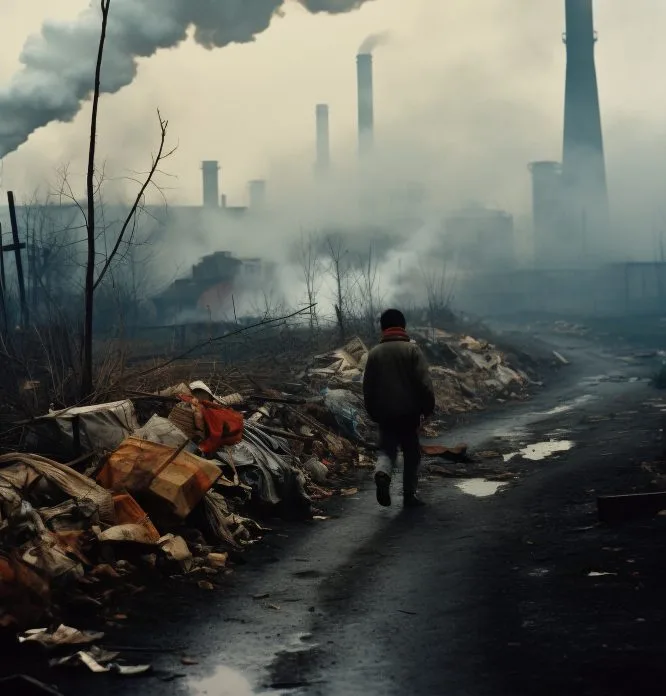Air pollution has become a serious problem worldwide, including in United States. According to the American Lung Association’s 2019 report, every American breathes harmful air pollutants into their bodies.
According to the association’s “State of the Air” report, 141 million Americans breathe unhealthy air, an increase of 7 million since 2018.
According to the Associated Press, the United States has experienced more polluted days in the past two years than ever before. After reviewing data from the Environmental Protection Agency, the US news agency reported that Americans experienced 15 percent more polluted days in 2018 than between 2013 and 2016.
Science has already told us that unhealthy air is a threat to human health. Air pollution, especially those pollutants in the air that are not visible to the naked eye, further increases the risks to human health.
Even low levels of air pollution can cause heart and lung problems, which can result in death. The link between air pollution and poor health is so deep that the World Health Organization has called air pollution the “new tobacco.”
Recent estimates from the World Health Organization suggest that more than 8 million deaths worldwide are attributable to breathing polluted air, meaning that people do not die as often from smoking cigarettes as they do from breathing polluted air.

University of California physicist and climate researcher Richard Mueller goes one step further in his 2018 environmental study on air pollution. He says that in 2018, the average American citizen’s life was damaged by smoking one-third of a cigarette throughout the day.
Although, smoking a cigarette equivalent to one-third of a cigarette every day may not seem like a cause for concern, if you add it up, it adds up to 100 cigarettes in a year and 1,000 in 10 years.
Richard Mueller says, “Breathing polluted air poses a serious health risk to every American, including children and women. I think air pollution is the single biggest environmental disaster in the world today. It’s a shame, I think, that we’re not giving it the attention it deserves.”
What Atmosphere are We Breathing?
Smoking exposes the human body to 7,000 chemicals, at least 69 of which are known to cause cancer. Air pollution varies from place to place. In the United States, fuel is the leading cause of death from air pollution, accounting for nearly 200,000 deaths.
You may also Read:
Ocean Pollution: Why Not Protect me From Contamination
Air Pollution – Effects, Causes, Definition and Control
Air Pollution, Just an Urban Problem?
A research group at The University of Texas at Austin is working to understand the relationship between air pollution emissions in cities, human exposure, and human health.
To effectively combat air pollution and improve public health, city planners, air quality regulators, public health workers, and other relevant stakeholders need accurate information about the different pollutants and how they interact.
“The bottom line is that without accurate air pollution standards, we are shooting in the dark about the sources of pollution and how to deal with them,” says Joshua Apte, assistant professor in the Department of Civil, Architectural and Environmental Engineering at the University of Texas at Austin.
According to experts, air pollution today is generally an urban problem, affecting the world’s major cities, but if it is not addressed seriously, the problem will spread beyond the cities and even affect villages and hamlets.
However, this does not mean that rural areas are completely safe from air pollution, but the truth is that the effects of air pollution are already being felt in remote areas.


